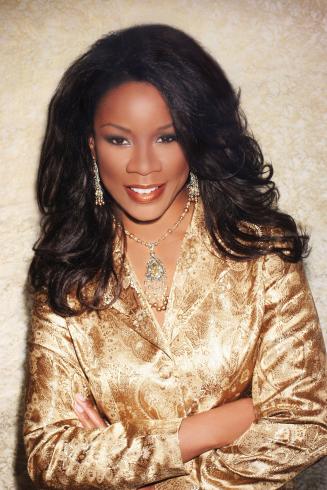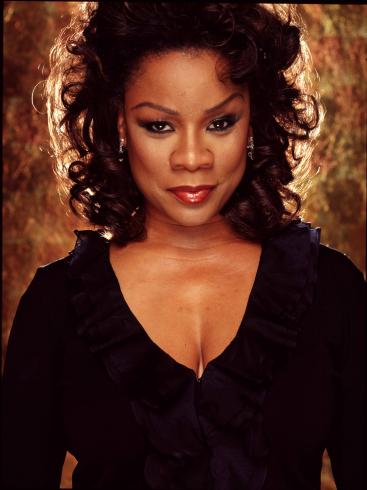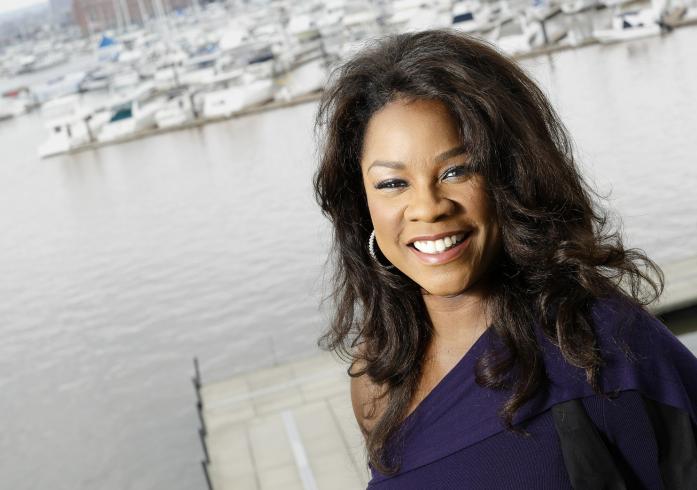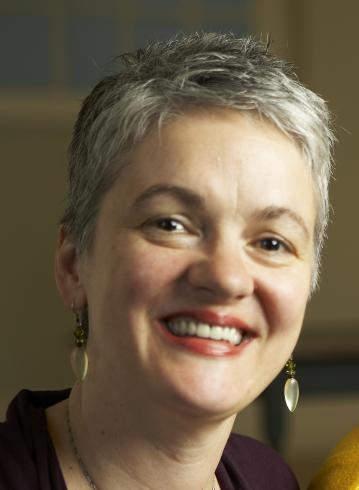Denyce Graves & Laura Ward
Mezzo-Soprano and Piano
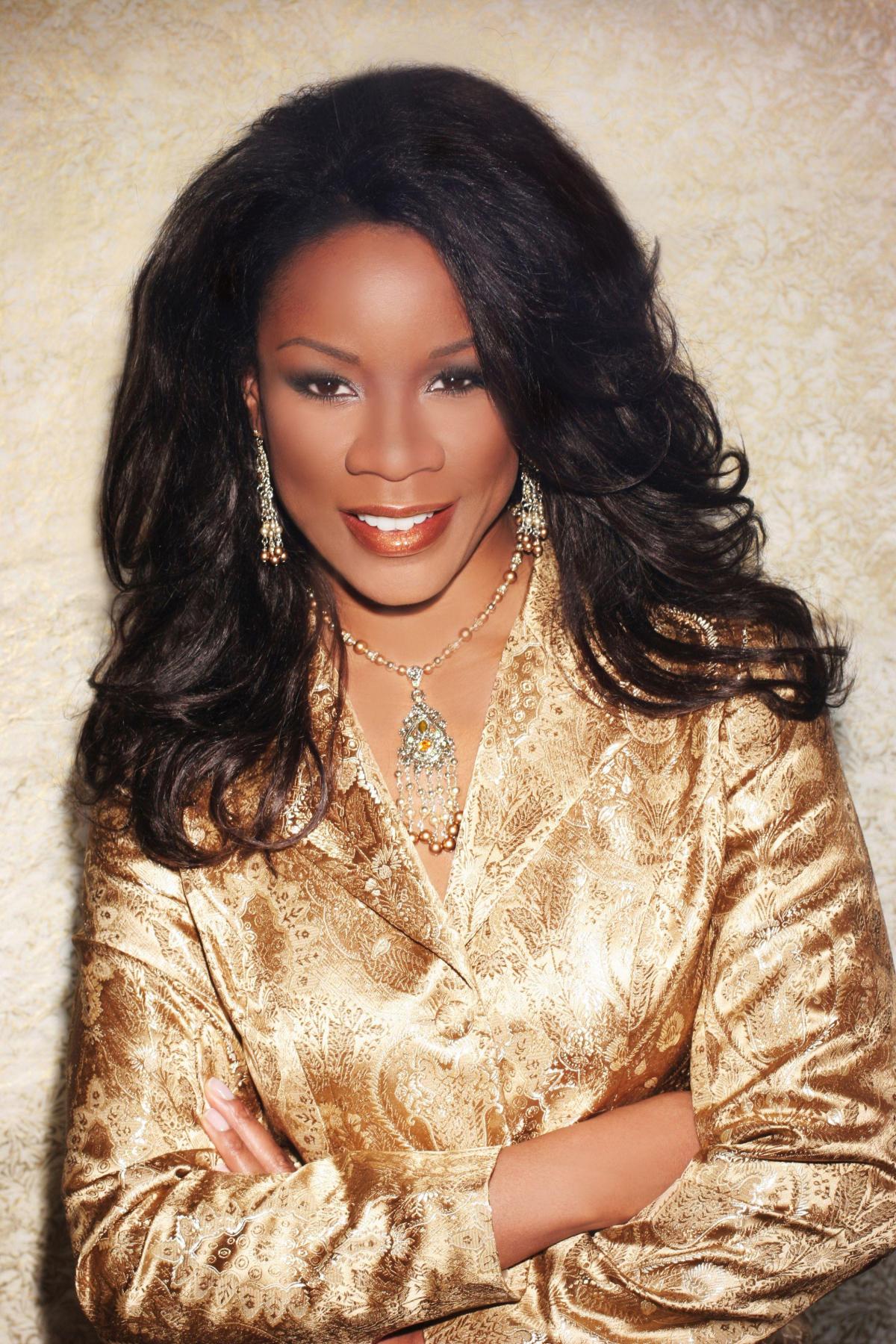
The acclaimed mezzo-soprano Denyce Graves will make her Phillips debut on September 25, 2016 in a program titled ‘America the Beautiful’.
Program
The acclaimed mezzo-soprano Denyce Graves was born in Washington, DC. She graduated from the Duke Ellington School of the Arts in 1981, going on to study at Oberlin Conservatory and New England Conservatory before embarking on her professional career at the Wolf Trap Opera Company. She made her debut at the Metropolitan Opera in New York in 1995 as Carmen – a role she has sung there more than 40 times. Her other roles at the Met have included Maddalena in Verdi’s Rigoletto, Federica in Luisa Miller, and Dalila in Saint-Saëns’s Samson et Dalila, in which she sang opposite Plácido Domingo. She currently sits on the voice faculty of the Peabody Conservatory in Baltimore.
PROGRAM:
‘America the Beautiful’
SAMUEL WARD (1847-1903)
America The Beautiful
arr. John Conahan
LEWIS ALLAN (1903-1986) & EARL ROBINSON (1910-1991)
The House I Live In
arr. John Conahan
HARRY BURLEIGH (1866-1949)
Among The Fuchsias
Jungle Flower
Worth While
LESLIE ADAMS (b. 1932)
Prayer
DOUGLAS CUOMO (b. 1958)
The Boys Nature
From the Opera Doubt
AARON COPLAND (1900-1990)
Zions Walls
At The River
I Bought Me A Cat
Intermission
TRADITIONAL SPIRITUALS
Swing Low
arr. Marvin Mills
Deep River
arr. Moses Hogan
Scandalize my Name
arr. L. Bell
JAKE HEGGIE (b. 1961)
Daybreak
From the Opera Three Decembers
GEORGE GERSHWIN (1898-1937)
Gershwin Medley
arr. John Conahan
GENE SCHEER (b. 1958)
American Anthem
About the Artist
Recognized worldwide as one of today’s most exciting vocal stars, Denyce Graves continues to gather unparalleled popular and critical acclaim in performances on four continents. USA Today identifies her as “an operatic superstar of the 21st century,” and the Atlanta Journal-Constitution exclaims, “If the human voice has the power to move you, you will be touched by Denyce Graves.”
Her career has taken her to the world’s great opera houses and concert halls. The combination of her expressive, rich vocalism, elegant stage presence, and exciting theatrical abilities allows her to pursue a wide breadth of operatic portrayals and to delight audiences in concert and recital appearances. Denyce Graves has become particularly well-known to operatic audiences for her portrayals of the title roles in Carmen and Samson et Dalila. These signature roles have brought Ms. Graves to the Metropolitan Opera, Vienna Staatsoper, Royal Opera House, Covent Garden, San Francisco Opera, Opéra National de Paris, Lyric Opera of Chicago, Washington National Opera, Bayerische Staatsoper, Arena di Verona, Deutsche Oper Berlin, Opernhaus Zürich, Teatro Real in Madrid, Houston Grand Opera, The Dallas Opera, Teatro Colón in Buenos Aires, Los Angeles Opera, and the Festival Maggio Musicale in Florence.
Ms. Graves appears continually on the stages of leading theaters in North America, Europe, and Asia. Highlights have included a Robert Lepage production of The Rake’s Progress at San Francisco Opera, the title role in Richard Danielpour’s Margaret Garner in the world premiere performances at Michigan Opera Theater with further performances at Cincinnati Opera, Opera Carolina, and Opera Philadelphia, the role of Charlotte in Werther for Michigan Opera Theatre opposite Andrea Bocelli in his first staged operatic performances, and the role of Judith in a William Friedkin production of Bartok’s Bluebeard’s Castle in her return to Los Angeles Opera; she also has sung Judith at the Washington National Opera and for The Dallas Opera. Recent appearances include the world premieres of Doubt at Minnesota Opera and Champion at the Opera Theatre of St. Louis, as well as the role debuts of Katisha in The Mikado for Lyric Opera of Kansas City and Herodias in Salome for Palm Beach Opera.
Ms. Graves’ 2015-2016 season features her company debut with the Santa Fe Opera as Gertrude in a new production of Gounod’s Roméo et Juliette, directed by Stephen Lawless and conducted by Harry Bicket, as well as performances with Kentucky Opera as Madeline Mitchell in Three Decembers, by composer Jake Heggie and librettist Gene Scheer. Highlights of the 2014-2015 season included a return to stage of the Royal Opera House, Covent Garden in Sir David McVicar’s new production of Andrea Chénier conducted by Music Director Sir Antonio Pappano, as well as the role of Nettie Fowler in Rodgers and Hammerstein’s Carousel in a new Rob Ashford production given by the Lyric Opera of Chicago. In the service of her country, Ms. Graves-Montgomery celebrated the bicentenary of The American National Anthem in a Star Spangled Spectacular for PBS Great Performances appearing with Kristin Chenoweth, Smokey Robinson, John Lithgow, and Marin Alsop leading the Baltimore Symphony Orchestra.
Ms. Graves has worked with the finest symphony orchestras and conductors in a wide range of repertoire. She has performed with Riccardo Chailly, Myung-Whun Chung, Charles Dutoit, Christoph Eschenbach, James Levine, Zubin Mehta, Lorin Maazel, Kurt Masur, Riccardo Muti, and Mstislav Rostropovich. One of the music world’s most sought-after recitalists, Ms. Graves combines her expressive vocalism and exceptional gifts for communication with her dynamic stage presence. Her programs include classical repertoire of German lieder, French mélodie, and English art song, as well as the popular music of Broadway musicals, crossover and jazz together with American spirituals. For her New York recital debut, the New York Times wrote, “[h]er voice is dusky and earthy. She is a strikingly attractive stage presence and a communicative artist who had the audience with her through four encores.”
In 2001 Ms. Graves gave a series of appearances in response to the tragic events in New York City, Washington, D.C., and Shanksville, Pennsylvania on September 11, 2001. Ms. Graves was invited by President Bush to participate in the National Prayer Service in Washington’s National Cathedral in which she sang “America, the Beautiful” and “The Lord’s Prayer.” This event was televised worldwide and was followed by Ms. Graves’s appearance on The Oprah Winfrey Show in a live musical program of “Healing through Gospel Music.” Ms. Graves appears regularly on radio and television as a musical performer, celebrity guest, and as the subject of documentaries and other special programming. In 1997 PBS Productions released a video and audio recording titled Denyce Graves: A Cathedral Christmas, featuring Ms. Graves in a program of Christmas music from Washington’s National Cathedral. This celebration of music including chorus and orchestra is shown each year on PBS during the Christmas season. Ms. Graves was seen on the Emmy-award winning BBC special “The Royal Opera House,” highlighting her debut performances there and she has been a frequent guest on television shows including Sesame Street, The Charlie Rose Show, and Larry King Live. In 1996 Ms. Graves was the subject of an Emmy-award winning profile on CBS’s 60 Minutes.
In 1999 Ms. Graves began a relationship with BMG Classics/RCA Red Seal. That same year Voce di Donna, a solo recording of opera arias, was released on RCA Red Seal. The Lost Days, a recording with jazz musicians of Latin songs in the Spanish and Portuguese languages, was released in January 2003. In June 2003 Church was released ‒ this recording, developed by Ms. Graves, brings together African-American divas from various forms of music, all of whom were first exposed to music through their upbringing in church. Participants recorded music of their choice and include Dr. Maya Angelou, Dionne Warwick, En Vogue, Patti LaBelle, and others. Other recordings of Ms. Graves include NPR Classics’ release of a recording of spirituals, Angels watching over me, featuring the mezzo-soprano in performance with her frequent partner, Warren Jones, and an album of French arias, Héroïnes de l’Opéra romantique Français, with the Orchestre Philharmonique de Monte-Carlo under Marc Soustrot. Her full opera recordings include Gran Vestale in La vestale, recorded live from La Scala with Riccardo Muti for Sony Classical; Queen Gertrude in Thomas’s Hamlet for EMI Classics; Maddalena in Rigoletto with the Metropolitan Opera Orchestra under James Levine; and Emilia in Otello with Plácido Domingo and the Opéra de Paris, Bastille Orchestra under Myung-Whun Chung, both for Deutsche Grammophon.
Ms. Graves is a native of Washington, D.C., where she attended the Duke Ellington School for the Performing Arts. She continued her education at Oberlin College Conservatory of Music and the New England Conservatory. Ms. Graves is the recipient of many awards, including the Grand Prix du Concours International de Chant de Paris, the Eleanor Steber Music Award in the Opera Columbus Vocal Competition, and a Jacobson Study Grant from the Richard Tucker Music Foundation. In 1991, she received the Grand Prix Lyrique, awarded once every three years by the Association des amis de l’opéra de Monte-Carlo, and the Marian Anderson Award, presented to her by Miss Anderson. In addition she has received honorary doctorates from Oberlin College, the College of Saint Mary, Centre College, and the New England Conservatory. Ms. Graves’s dedication to the singers of the next generation continues to be an important part of her career and recently she joined the voice faculty of the Peabody Conservatory of Music in Baltimore.
Laura Ward is pianist and Artistic Director of Lyric Fest, www.lyricfest.org, a unique vocal recital series in Philadelphia. As a distinguished collaborative pianist she is known for both her technical ability and vast knowledge of repertoire and styles. Concert engagements have taken her to Carnegie Hall, The Kennedy Center, Boston’s Isabella Stewart Gardner Museum, the Spoleto Festival (Italy) and the Colmar International Music Festival and Saint Denis Festival in France. She has served as a vocal coach at The CoOPERAtive Program at Westminster Choir College, The Academy of Vocal Arts, Temple University, Ravinia Festival Stean’s Institute, Washington Opera, University of Maryland, Music Academy of the West and Cleveland’s Blossom Festival and as the official pianist for the Washington International Competition, the Astral Artists Auditions and for the Marian Anderson Award. Laura is a recording artist and editor of song accompaniments for publisher Hal Leonard having co-edited: Richard Strauss: 40 Songs, Gabriel Fauré: 50 Songs, and Johannes Brahms: 75 Songs and recorded over 2000 song accompaniments for Hal Leonard Publishing. These volumes help countless singers and pianists experience, learn and enjoy the art song repertoire and also help introduce a world of art song to many who have had little exposure to classical song. A native of Texas, Laura received her Bachelor in Music degree from Baylor University, holds a Masters in Piano Accompanying at the Cincinnati Conservatory of Music and a Doctorate in Accompanying from the University of Michigan where she was a student of Martin Katz.
Notes
From Sea to Shining Sea: Glimpses of an American Songbook
Notes by Nigel Simeone
It’s often the case that world-famous songs have complex histories, and America The Beautiful is no exception. In 1882, the organist Samuel Augustus Ward (1847–1903) composed the tune for the hymn ‘O Mother Dear, Jerusalem’, first published in Boston in the weekly magazine The Parish Choir in 1887. In 1893, Katharine Lee Bates (1859–1929), an English professor at Wellesley College, took a train journey to Colorado Springs and wrote a poem inspired by what she saw on the trip, including the Chicago World’s Fair, the prairies of Kansas, and the view of the Great Planes from Pikes Peak in Colorado, which Bates climbed in a prairie wagon. She was astonished by the grandeur of the landscape and later wrote: “It was then and there, as I was looking out over the sea-like expanse of fertile country spreading away so far under those ample skies, that the opening lines of the hymn floated into my mind.” Bates’s poem was published in the religious magazine The Congregationalist in 1895, with the title ‘America’, and words that differ from the familiar version, opening with the line: “O beautiful for halcyon skies”. Bates revised the poem in 1904, and at this point music and lyrics were combined for the first time. Ward had died in 1903 and never knew of the immense success the song went on to have. The song as we know it today was first printed as No. 266 in Fellowship Hymns, a collection edited by the Baptist clergyman Clarence Barbour issued by the Young Men’s Christian Association in 1910. Despite the music and poem originating separately, the fit between tune and lyrics is perfect. It’s curious to note that in 1926 a competition was held by the National Federation of Music Clubs to find a newly-composed tune to go with Bates’s words, but Ward’s tune prevailed. From the late 1920s onwards, it has regularly been proposed as a new national anthem to replace The Star-Spangled Banner.
The House I Live In dates from World War II. It originally appeared in the musical revue Let Freedom Sing, which opened in October 1942, and later became famous as the title song of the short film The House I Live In (1945), when it was sung by Frank Sinatra. The music was by Earl Robinson (1910–1991), a pupil of both Copland and Hanns Eisler who worked in the 1930s for the WPA Federal Theater Project and who composed songs for the presidential campaigns of Franklin D. Roosevelt and, later, for Rev. Jesse Jackson. Robinson was blacklisted during the McCarthy era and was one of the 151 people from the entertainment industry in the notorious 1950 list published by the rabidly anti-Communist Red Channels, along with the likes of Leonard Bernstein, Aaron Copland, Judy Holliday, Lena Horne, Langston Hughes, Arthur Miller and Pete Seeger. The lyrics of The House I Live In were by Lewis Allan (the pseudonym for Abel Meeropol, 1903–1986) whose most famous song was Strange Fruit (1936), one of the most haunting protests against racism that was immortalized by Billy Holliday.
Harry Burleigh (1866–1949, born Henry Thacker Burleigh) was an African-American composer and singer, born in Erie Pennsylvania. Thanks to the support of Frances MacDowell (Edward MacDowell’s mother), Burleigh received a scholarship to study at the National Academy of Music in New York City, where he came to the notice of the Academy’s director, Antonín Dvořák. As Burleigh later recalled: “I sang our Negro songs for Dvořák very often, and before he wrote his own themes, he filled himself with the spirit of the old Spirituals.” Dvořák himself declared that in those melodies he found “all that is needed for a great and noble school of music.” Burleigh is best remembered for his arrangements of spirituals (mostly published in 1916–17), but he also composed a large number of original songs for voice and piano. In 1915, Ricordi in New York published Burleigh’s Five Songs of Laurence Hope in which his own distinctively American musical language is tinged with the exotic. “Among The Fuchsias”, “Jungle Flower” and “Worthwhile” are all settings by an intriguing British poet. “Laurence Hope” was the pseudonym for Adela Florence Nicolson, née Cory (1865–1905), the daughter of a Colonel in the British Army in India. She married a British soldier – Colonel Malcolm Nicolson and became a passionate enthusiast for Indian food and customs. The score of Burleigh’s songs has a preface by Henry Edward Krehbiel, music critic of the New York Tribune, who wrote that in all of the songs, “the pianoforte and voice are beautifully and truthfully consorted in the utterance of the poetic sentiment. … We have had occasion to learn how adept Mr. Burleigh is in imbuing music with his own national voice, and it is a pleasure to observe that the idiom of the East is also at his command.”
Leslie Adams (b. 1932) is an African-American composer whose works include the opera Blake based on the nineteenth-century novel by Martin Delany which recounts the story of a slave who resolves to lead his people out of bondage on the eve of the Civil War. Adams’s other works includes an extensive output of songs. In the early 1960s, Adams met Langston Hughes (1902–1967), the great poet of the Harlem Renaissance, who gave permission to set some of his poems, including Prayer. Adams subsequently set more poems by Hughes and other African-American writers to create Nightsongs, a cycle first performed in New York on 1 December 1961. Prayer has remained the most popular song from this set.
Douglas J. Cuomo (b. 1958) is an extremely versatile composer whose music ranges from television themes (including Sex and the City) to full-length operas. Doubt was commissioned by Minnesota Opera and first performed in St. Paul, MN, on January 26, 2013, with a cast that included two of America’s most distinguished singers: the soprano Christine Brewer, and Denyce Graves. The opera is based on John Patrick Shanley’s Pulitzer Prize-winning play (and the subsequent movie starring Meryl Streep), with a libretto by the author, and it was an immediate success at its premiere. “The Boy’s Nature” is an intense and lyrical aria sung by Mrs. Miller, the role created by Denyce Graves.
Aaron Copland (1900–1990) completed the first set of Old American Songs in 1950, taking the tunes from published collections but giving them a brilliantly individual character that is entirely Copland’s own. The first performance was given by Copland’s friends Peter Pears and Benjamin Britten on 17 June 1950, at the Aldeburgh Festival in England – appropriately enough, since Britten himself had already made similarly inventive arrangements of British and French folksongs. The last song in Set I was among the first to be arranged: I Bought Me A Cat (a children’s singing game, originally from England) was intended for one of Copland’s most tantalizing unfinished projects: the 1945 musical, This Tragic Ground. So, too, was the version of the revivalist song Zion’s Walls included in the second set of Old American Songs (finished in 1952). This, in turn, was incorporated into the opera The Tender Land. The hymn tune At The River – included in the Second Set – was composed by Robert Lowry (1826–1899) in 1864 for the Hanson Place Baptist Church in Brooklyn. Copland’s transformation of this tune, adding subtly surprising harmonies and creating a deeply prayerful mood, makes it one of the most moving of all his arrangements.
Though they had long been recognized for their musical quality during the colonial and antebellum periods, the systematic publication of traditional Spirituals only started after the Civil War and the Emancipation Proclamation. Slave Songs of the United States, the first substantial collection, appeared in 1867. It was followed five years later by Jubilee Songs, as sung by the Jubilee Singers of Fisk University (1872), which included the first known publication of Swing Low, Sweet Chariot. In 1875, The Story of the Jubilee Singers, with their Songs included the earliest appearance in print of Deep River. Scandalize My Name was another spiritual that was well-known before the age of recording, and all three became internationally famous through records made by Paul Robeson and Marian Anderson, and the published voice and piano arrangements by Harry Burleigh that started to appear in 1917 (the first was Deep River). Later composers have risen to the challenge of making their own arrangements. In England, Michael Tippett had a striking success with the spirituals in his wartime oratorio A Child of Our Time (1944). Burleigh’s African-American successors have continued the tradition, including Moses Hogan (1957–2033), and the Philadelphia-born organist and conductor, Marvin Mills.
Jake Heggie (b. 1961) is one of America’s leading opera composers whose twelfth opera, Great Scott, was completed in 2015. The chamber opera Three Decembers (originally entitled Last Acts) was given its premiere at Houston Grand Opera in 2008. It sets a libretto by Gene Scheer based on an original text by Terence McNally. Daybreak is a richly melodic aria added by Heggie when he revised the opera in 2010. It is sung near the start of the opera by the central character of Madeline, a famous actress.
No songs have a more central place in the American Songbook than those of George Gershwin (1898–1937) and his brother Ira (1896–1983). So many of them have an independent life that it’s easy to forget that most of them were originally composed for Broadway shows. One of their most famous songs is a fascinating case in point. George and Ira started their collaboration with Lady, Be Good (1924), a show that included one song – The Girl I Love – cut before the first night. It was reworked as The Man I Love for Strike Up The Band (1927) but once again it was cut before the Broadway opening. A year later they included it in Rosalie, and it was deleted from that too. Songs as magnificent as this one may not have been thought right for Broadway, but they very quickly became established as classics, sung by all the leading artists of the day, and presented by Gershwin himself in the brilliant solo piano transcriptions that he performed regularly in concerts and on radio shows. The medley of Gershwin songs in this concert has been made John Conahan, a versatile composer and conductor who has worked regularly with Denyce Graves.
Gene Scheer (b. 1958) is an American songwriter and lyricist who has collaborated closely with composers such as Jake Heggie and Tobias Picker. Scheer is also a composer in his own right. American Anthem is particularly associated with Denyce Graves. It was written in 1998, and first performed by Denyce Graves for Bill and Hillary Clinton at the Smithsonian Institution. The song was subsequently performed with the United States Army Band and Chorus at the opening ceremonies of the Millennium celebration on the Mall in Washington, D.C. Following 9/11, Denyce Graves performed American Anthem on The Oprah Winfrey Show.
